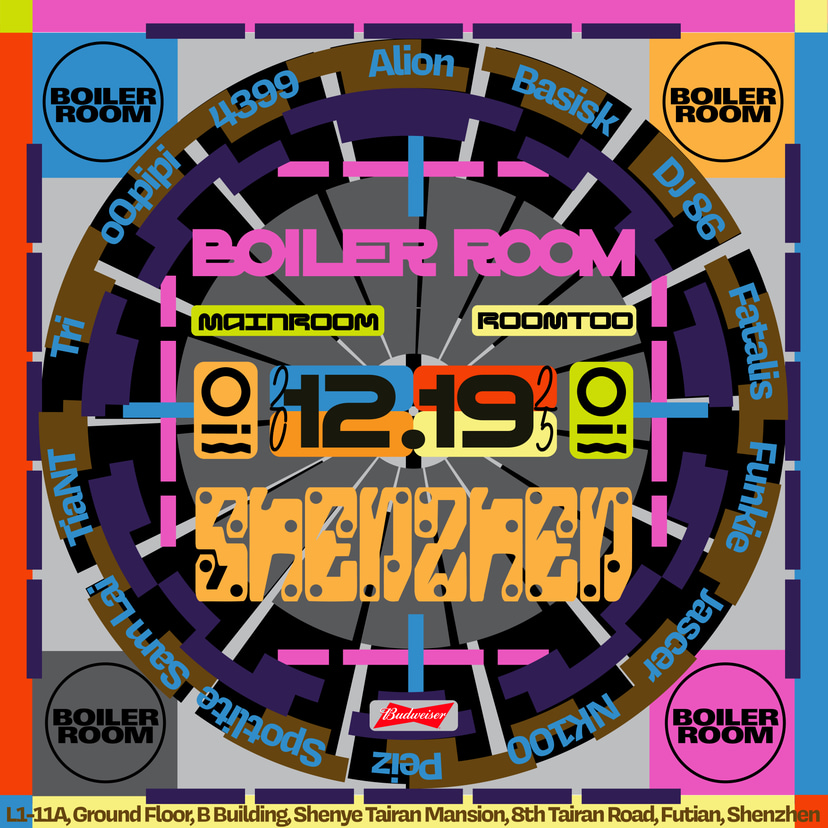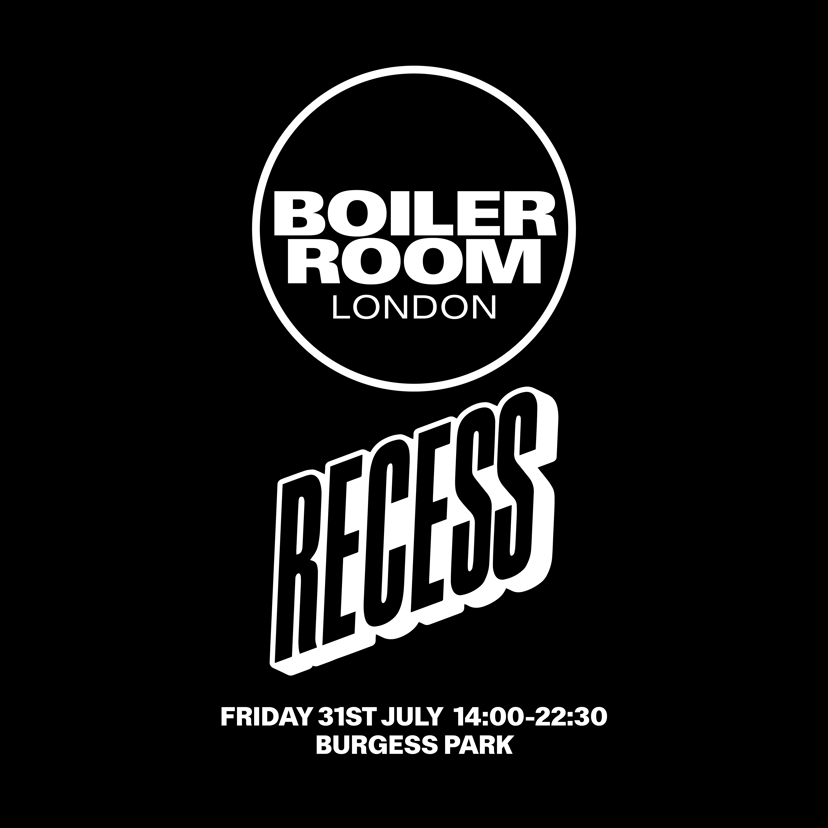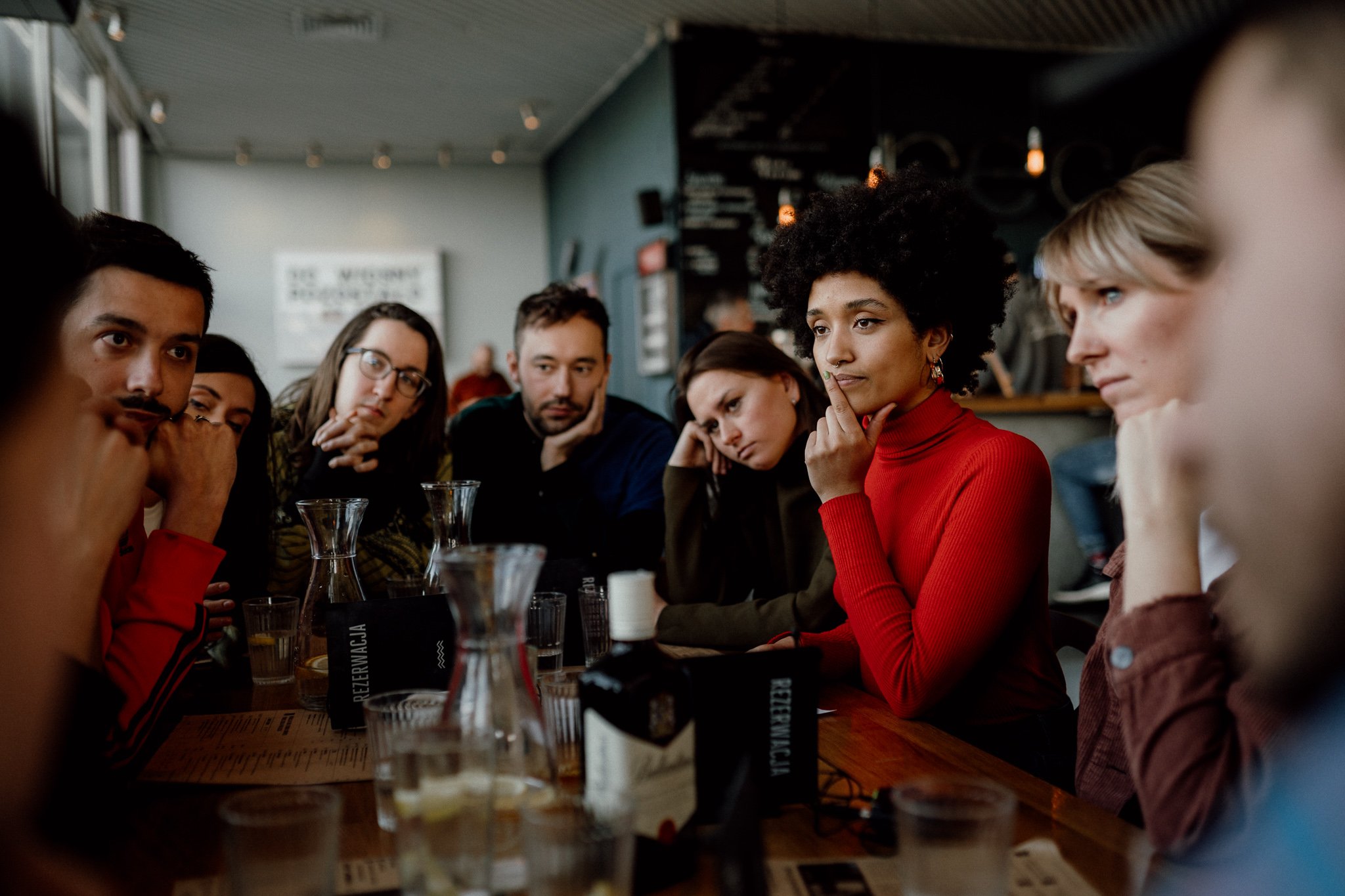
Krakow: United We Stand
A host of DJs, promoters and artists from Krakow's clubbing community convene to discuss how to build their scene.
Welcome to Krakow, the former capital of Poland. A city with 800,000 citizens but only two venues programming electronic music regularly. One of those will soon be closed permanently. Krakow is the academic hub of the Lesser Poland region; 200,000 students enrolled at a time. Yet check the Facebook event for the next club-night hosted by one of Kracow’s most-renowned local techno collectives; only 142 people are interested - 38 more are luckily attending. If Krakow’s nightlife can be described as flourishing, it’s entirely down to the creativity and endurance of local promoters, bookers, producers and DJs, whose work is often overlooked.
The history of Krakow’s nightlife is approximately four decades long. Of course people were gathering around speakers or musicians and dancing long before 1989, when Poland was shaken to its core by the sudden yet peaceful collapse of Communism. However, the opening of borders, a more capitalist perspective from the West and the spectrum of cultural changes completely revolutionised clubbing in Poland; as it did to every other aspect of daily life for the Poles.
You can trace Krakow’s own hardcore continuum from the first rave parties of the early ‘90s; pioneering DJs mixing techno, trance and drum & bass on belt drive turntables. On to the next decade, 30,000-Watt sound systems would draw thousands to dub(step) bashments. And now, modern-day Krakow has Unsound; an annual festival widely regarded for its cutting-edge programming. Everything has changed over the past four decades; yet most of the realities facing the local club scene have stayed the same.
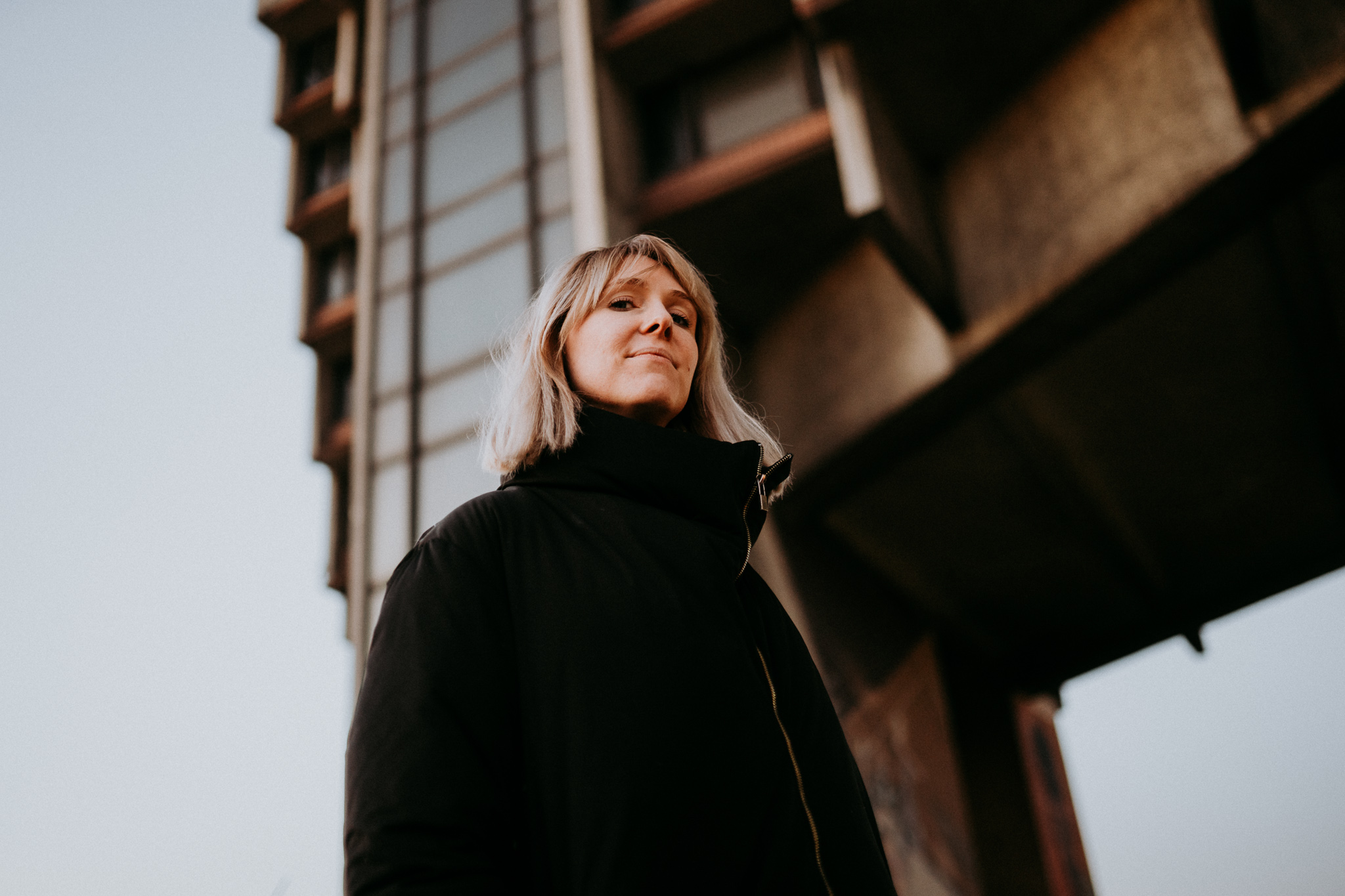
One of these is pinpointed by Paulina Żaczek, Creative Director and PR Manager of Szpitalna 1, one of two aforementioned clubs that host regular independent electronic music parties. Soon it will be the only one. “There are a lot of people here that really want to do something; they have loads of energy and put a lot of work into making it happen. But there’s not enough people going to all these club nights or singular events and not enough venues to organise them in,” Paulina states. She thinks there is definitely an underground scene in Krakow, but feels the city is a bit of a bubble. “Tourism distorts the estate market and few people can afford opening a club in the middle of the city. This is super challenging and we don’t want it to stop our scene from thriving”.
Paulina, balanced between enthusiasm and fatalism, is attempting to diagnose Krakow’s current clubbing climate as part of a round-table discussion hosted by Boiler Room and Ballantine’s. Located in the iconic, brutalist surrounds of Hotel Forum, this discussion features representatives from different cultural, grassroots movements - promoters, bookers, PRs, DJs and producers. They’ve gathered to reflect on Krakow’s music scene at the turn of the decade as part of the True Music project. Since this group forms the core of Krakow’s clubbing (high-tech) soul, their discussion is passionate and ardent, fragmented yet comprehensive, focused on local themes that are at the same time universal.
Olivia, a renowned local techno DJ from the Radar collective and Unsound resident who’s played CTM Festival, De School and NTS, expands on the topic Paulina has just raised. “The main problem is gentrification of the city and the rental costs of spaces on the main market square and Kazimierz,” Olivia states, “owners want tenants to pay more and more. This is why the clubs turn into more commercial spaces, because at the end it’s just business.” More grass roots venues are required according to Anatomy of Mashup, the production/DJ duo behind the Techno Rączka platform that just couple years ago started a series of regular and highly popular four to the floor nights. “We need more pubs, clubs and other venues opened to electronic music,” they add.
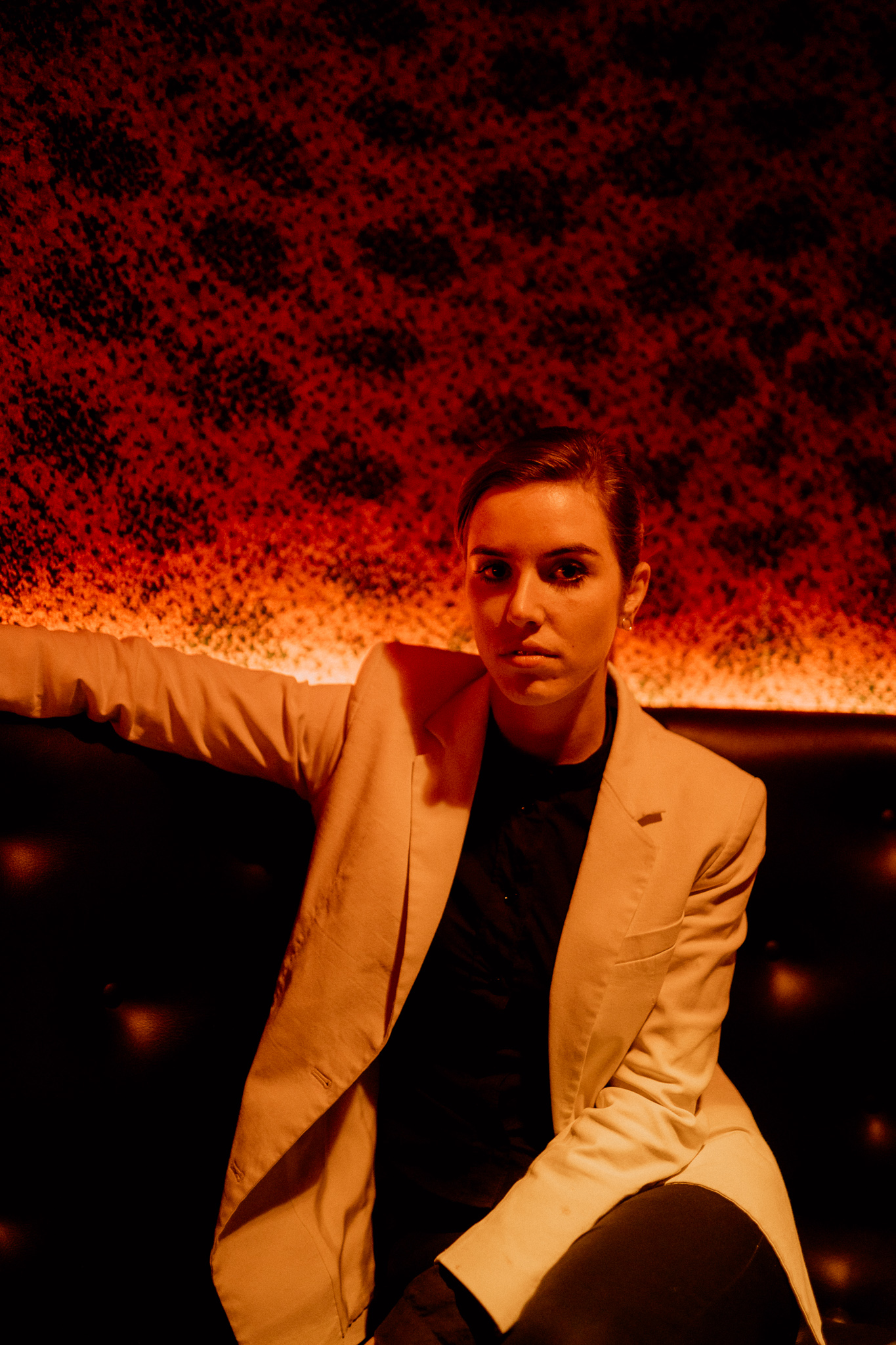
Walking through the tiny, paved streets of Krakow’s Old Town, you’ll mostly experience tourists and students. However, according to the speakers who gathered at Hotel Forum, Krakow’s club scene needs more visibility with these core local demographics. The majority of the city’s 200,000 students don’t go clubbing for one reason or another.
“If we compare the salaries in Germany and in Poland the difference is still quite significant. This obviously affects Polish students and young people in general,” Olivia offers, suggesting the cost of living doesn’t extend to regularly paying for club nights that cost 25-30zl, which is approximately 7 euros. Drinks prices in clubs are more expensive due to rising rents, plus you’ll need extra money for a cab home. As a result, Olivia suggests “students often choose cheap pubs or drinking spots that put the prices of alcohol above anything else, including music.”
Whilst there are plenty of Krakow students as Olivia describes above, there’s another group unaffected by these factors who attend the bass-driven Czeluść nights in droves. KOSA is one of the main originators of Czeluść, a rap-incited, witch-house influenced and gabber/hardstyle fascinated production, DJ and promotion platform. He feels young people make up the majority of the Czeluść massive. “Most of our attendants are students and they all pay 30zl at the door,” KOSA states, admitting this is closely connected to the music played at Czeluść but adding it’s also down to their promotion of young talent. “They are often bedroom producers, kids that are just 18 years old.”

Yet another participant of the discussion, Michał Ichniowski, Director of the Egodrop trance movement brings up the lack of local press for the city’s own club circle. “We have some local media in Krakow but I don’t think anyone pays attention to them as they don’t come up with interesting angles of seeing things, or even don’t understand certain areas of the scene,” he states. “In the meantime, all the bottom-up alternatives land on Facebook where you don’t see much because of the changing algorithms and the ranges being gradually cut,” he adds. There is clearly a necessity for a promotion system that could put focus on this particular scene.
While Czeluść exist on the brink of the overwhelmingly popular Polish rap scene and can efficiently dialogue with their audience through Facebook or Instagram, the older demographic that Radar, Techno Rączka or Szum nights attracts is a bit more difficult to reach. Online forums that grew in the late ‘90s were practically swept away by the social media platforms; their policies aren’t especially friendly for small, grassroots initiatives and the local media is generally not interested in the subject. Leona Jacewska, better known as Charlie - an eclectic DJ & promoter engaged in different interdisciplinary, urban projects - agrees with Michał. “There’s no place you can learn about electronic music besides the club. We don’t have record shops in Krakow, there’s no radio, no recording studio, no workshop is focused on similar aesthetics,” Leona notes. “There is a platform missing that could connect us during the day so we can understand the night better,” she adds.
Those present at the Hotel Forum discussion may not all agree on how to help Krakow’s clubbing scene grow, but collectively they can gain different perspectives and approach them jointly, in full charge. Comparable to many other local scenes around the globe, Krakow’s clubbing community doesn’t face many major obstacles in becoming bigger, more prosperous and widely renowned. In order for this to happen, the community just has to remain as persistent, conscious and inventive as they have been throughout the years.
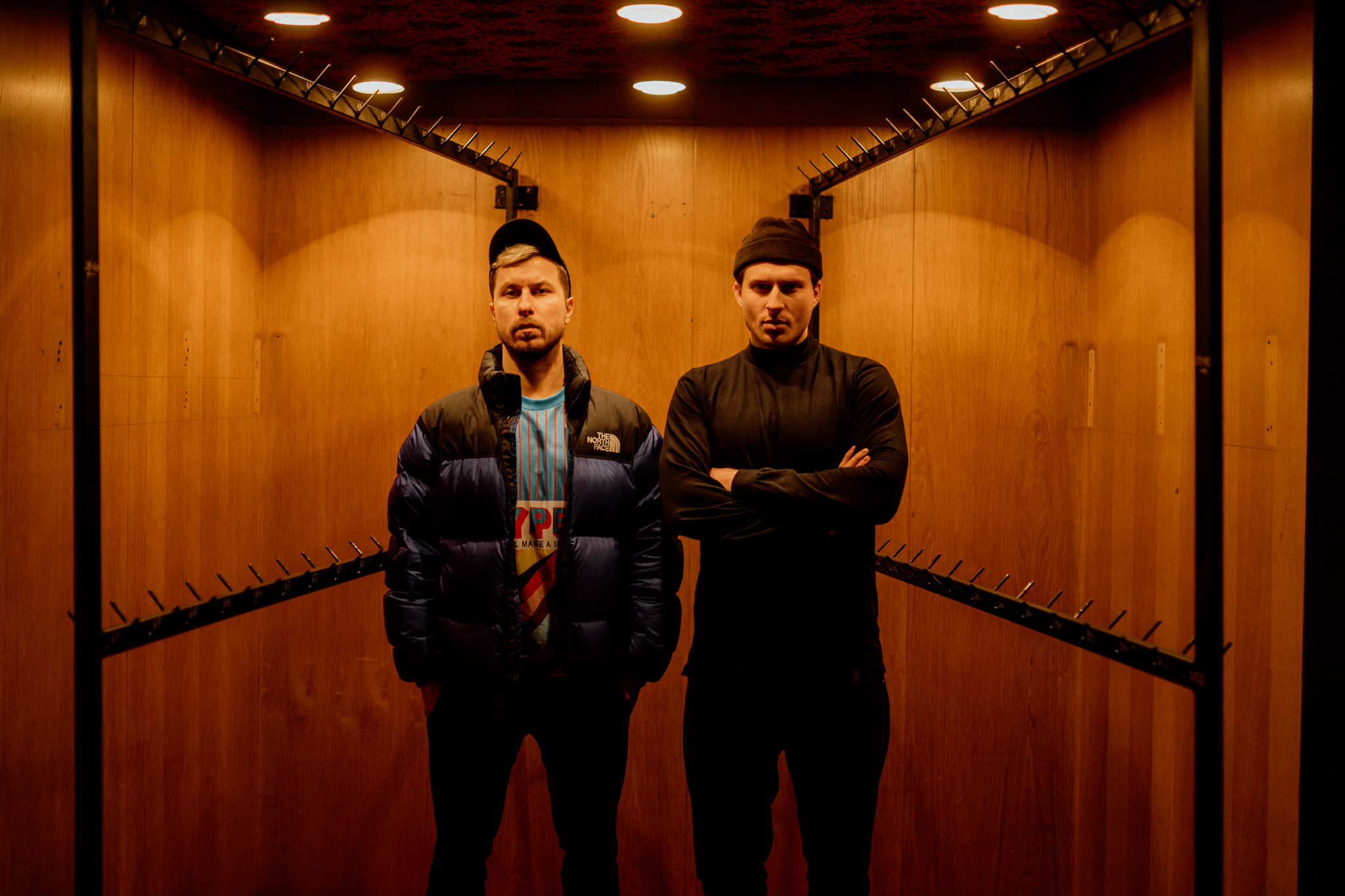
After all, Krakow has seen been responsible for fostering many talented DJs and producers. I’ve witnessed numerous memorable gigs and Polish electronic music history has been written in quite a few Krakow venues. The city has given birth to nationally recognised movements such as We Are Radar, Czeluść or Techno Rączka; this has laid the groundwork for Unsound to become perhaps one of the most progressive music festivals in the world.
Even if the circumstances are sometimes hard due to the realities discussed above, the future looks bright over the night sky of this former capital of Poland. “It’s always the thing of getting the balance right,” as Egodrop’s Michał was happy to point out throughout the discussion.
Written by Filip Kalinowski
All photography courtesy of Maciek Zygmunt
The Boiler Room x Ballantine’s True Music project is a partnership connected by their common interest in sound and the different places it comes from. Over the past five years Boiler Room and Ballantine’s have thrown parties in more than 28 cities, and have worked with more than 220 artists across the globe, documenting local music stories along the way. For 2019, there has been a shift in focus - to support the music communities of KraKow, Moscow, Madrid and South Africa to help drive True Music scenes grow, evolve and ultimately drive forward.

